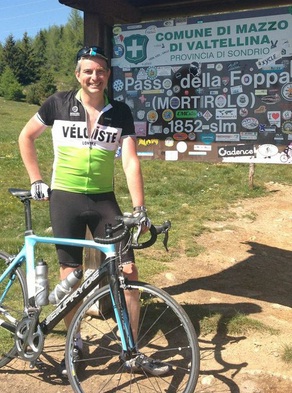Paris by Noon? Wheel See
Agility is a word we use often at Zeno.
It’s been even more front of mind for me in recent weeks, because when I stand to get up from my desk, I haven’t been feeling so agile. There’s a good reason though – at the weekends, I’ve been putting in the miles (or kilometres, in global cycling parlance) training for what has become a daunting charity bike.
It has been taking its toll on the legs, and the ride itself, from London to Paris in less than 24 hours over the first weekend of September, promises no respite.
Like a lot of other people around here, I’ve done some charity fundraisers that require a fair amount of physical training and bravery to take on. This year I thought I’d push it a lot further by enlisting in one of the toughest one-day challenges cycling has to offer.
Romantics might get misty-eyed at the thought of rolling away from London’s River Thames at noon on a Saturday, through the hills of southern England and boarding a boat at twilight, to emerge into the darkness in northern France and pedal through quiet villages and minor roads until dawn, in the hope of a momentous arrival at the Eiffel Tower before noon. In reality, this is more likely to be 270 miles/430km of enjoyment-turned-suffering.
As I’ve put in the kilometres (not nearly enough, given there’s no real way of getting that kind of distance in during a normal weekend) of training, I’ve had lots of questions from colleagues, clients and friends about how to prepare for something like this. And thank you to everyone who has donated money and their words of support.
While it’s probably not most people’s ideal way to spend a weekend, here are a few tips:
1. Motivation must go with momentum. The biggest worry is panic if you fall off the pace, so it’s important to both pace yourself and be able to ride faster than the average time required
2. Cadence, or consistency of pedalling, is crucial in keeping the pace right. That means a lot of kilometres in the saddle beforehand
3. Nutrition is easy to underestimate. I found that above five or six hours on the road, my digestion would change. I’d need far more water, and needed to eat as energy levels were dropping, but couldn’t. Eating little but often helps, even if chewing bits of energy bar while being overtaken by dirty trucks on a windswept suburban road is hardly haute cuisine
4. Hydrate lots more than usual. Obvious really
5. Distance night riding means a need for really bright lights on country lanes. Urban commuters can be shocked by this – again though, obvious
6. Binge sleep for a few days before. Realistically, there’s no way to sleep on a 90-minute boat crossing with the adrenaline up. Sleep deprivation is a big enemy with something like this
7. Learning how to change a puncture quickly in the rain, in a gutter, while most sensible people are still in bed, is a life skill
8. The wearing of Lycra garments in the early morning office environment is something other people never quite get used to. Just smile and carry on though
9. Applying soothing creams to areas of the body likely to experience extreme discomfort is a good idea. I think you know what I mean
10. Confidence that you have a shot of achieving the target is the most important take-away from any training for anything like this
So Paris awaits. In under 24 hours, I hope. Many a dodgy road sign, fellow cyclist, stumbling pedestrian, inconsiderate motorist and cheering enthusiast to encounter along the way no doubt. It should be a fearless little adventure.
But that’s how I roll.
